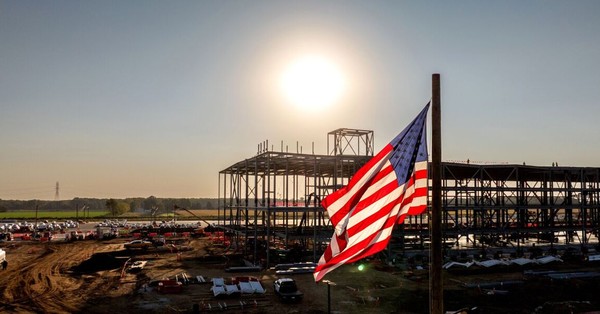Expanding industrial capabilities with 5G Standalone Private Networks
Ericsson and Vodafone Portugal have partnered to deploy a cutting-edge 5G Standalone Private Network at CIMPOR’s cement plant in Alhandra, Portugal. This initiative highlights the transformative potential of 5G in heavy industry, enabling greater agility, efficiency, and sustainability. The Alhandra plant, operating for over 130 years, is now integrating advanced communication and automation technologies, marking a significant milestone in its journey toward digitalization and decarbonization.
Key Challenges Addressed by 5G in Cement Manufacturing
Industries like cement manufacturing face unique challenges, including:
- Monitoring and maintaining vast assets under extreme operational conditions.
- Ensuring worker safety while performing high-risk inspections.
- Reducing environmental footprints in energy-intensive processes.
- Managing costs associated with downtime, spare parts, and labor.
The deployment of 5G Private Networks offers tailored solutions to these challenges by facilitating real-time monitoring, seamless communication, and advanced automation.
Innovative Industrial Use Cases Enabled by 5G Standalone Private Network
The new network at CIMPOR’s plant supports several innovative use cases:
- Machine Health Monitoring
IoT sensors monitor vibration, temperature, and noise, ensuring proactive maintenance. This approach minimizes downtime, improves equipment reliability, and reduces costs associated with spare parts and labor. - Drone-Assisted Inspections
Indoor drones powered by 5G enhance safety and efficiency by conducting rapid, precise inspections. These inspections reduce stoppage periods and improve worker safety in hazardous environments. - Smart Glasses for Remote Assistance
Smart glasses equipped with AI-powered voice recognition enable hands-free operations and advanced support for fieldwork, fostering continuity and safety. - HD Wireless Cameras
High-definition cameras eliminate monitoring dead zones, enabling real-time observation and early detection of potential equipment failures. - Digital Twin Visualization
A virtual representation of the facility allows better infrastructure planning and operational decision-making.
Technology Enabling CIMPOR’s Digital Transformation
Ericsson’s 5G solutions, including its radio access network (RAN) and core technologies, play a pivotal role in this transformation. The project integrates Multi-Operator Core Network (MOCN) technology, allowing resource sharing while maintaining dedicated, high-performance connectivity for industrial use. Additionally, the cloud-based management capabilities of Ericsson’s Private 5G solution ensure scalability and robust network security.
Advantages of 5G in Enhancing Safety, Efficiency, and Sustainability
CIMPOR’s adoption of 5G yields multiple advantages:
- Operational Efficiency: Real-time monitoring and automation reduce downtime and optimize costs.
- Enhanced Safety: Smart devices and drones improve worker safety during high-risk tasks.
- Sustainability: Digital tools indirectly contribute to decarbonization, with even a 1% efficiency gain equating to nearly 140,000 tons of CO2 reduction annually.
- Industry 4.0 Enablement: The network supports autonomous devices, remote equipment monitoring, and advanced worker safety protocols.
Scaling 5G Innovation Across Heavy Industries
This deployment not only strengthens CIMPOR’s position in the market but also sets a benchmark for other heavy industries in Portugal. The ongoing installation of similar 5G networks at additional CIMPOR plants underscores a broader strategy to modernize cementmanufacturing, paving the way for a sustainable and competitive future.
The Collaborative Effort Behind Industrial 5G Solutions
Ericsson and Vodafone’s collaboration highlights the synergy between advanced telecom solutions and industrial needs. Ericsson’s tailored 5G technologies and Vodafone’s network expertise deliver a scalable and secure communication backbone for industrial applications.
The implementation of a 5G Standalone Private Network at CIMPOR’s cement plant demonstrates the potential of 5G in revolutionizing heavy industries. Through enhanced operational efficiency, safety, and sustainability, this project not only transforms CIMPOR but also sets the stage for widespread adoption of similar technologies in the industrial sector. As 5G continues to evolve, partnerships like these will define the future of industrial innovation.







































